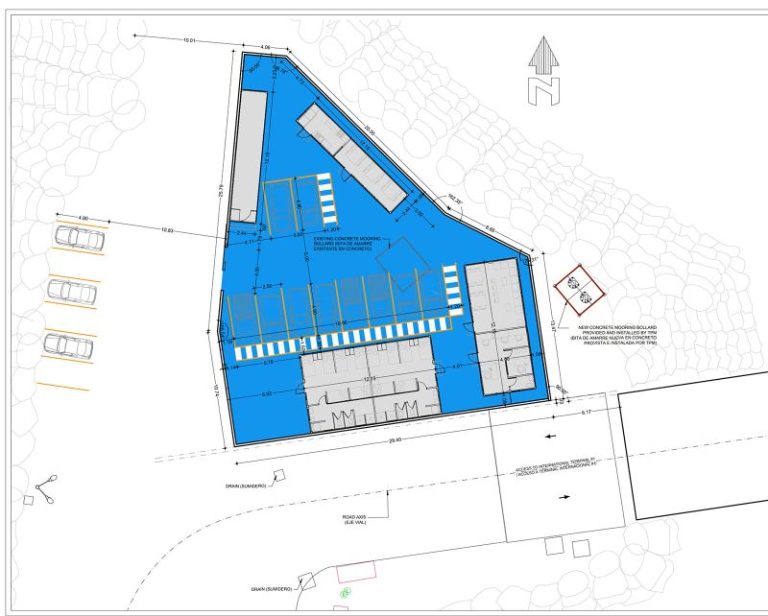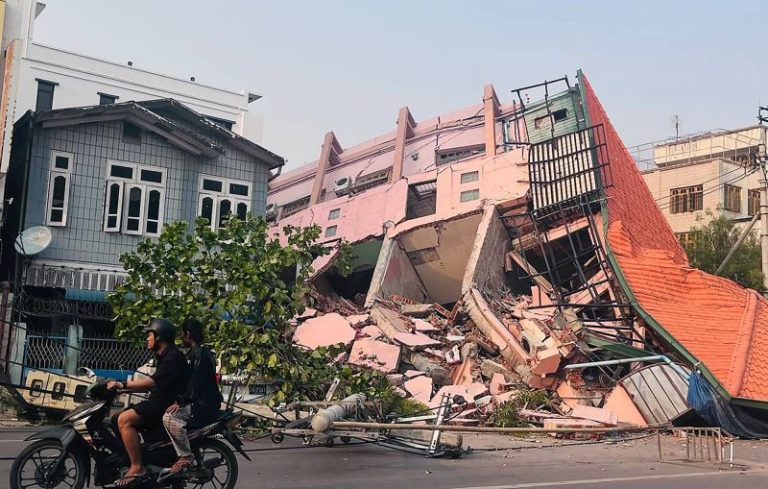According to a high-level Ecuadorian official familiar with the planning, construction of a new naval facility in the coastal city of Manta is part of that preparation, with barracks-style housing and administration offices designed to support sustained operations and US military personnel. The official requested anonymity because they were not authorized to speak publicly.
Ecuadorian President Daniel Noboa has made no secret of his desire for foreign boots on the ground as gangs unleash terror across the country – a request he is expected to reiterate this weekend. Noboa is set to meet Trump in Florida on Saturday to discuss immigration, trade and “security cooperation.”
Noboa told the BBC he wants the US, Brazil and European nations to join his war on gangs. During an interview in early March, the president claimed Ecuador is dealing with “international narco-terrorist” groups and that his country needs the “help of international forces.” In a local radio interview, he said his government was “already in talks” to receive foreign military support for provinces such as Guayas, known for high crime, but did not specify which countries were involved in the talks.
“We have a plan in place with our law enforcement agencies, the Ministry of the Interior, the Ministry of Defense, the armed forces, the Strategic Intelligence Center, and international assistance and support from special forces. That’s essential,” he told Guayaquil’s Radio City.
Noboa’s efforts are heavily dependent on April’s presidential runoff as he’s set off to face leftist candidate Luisa Gonzalez, who opposes the presence of any foreign force in the country.
The rapid pace of construction in Manta, the official said, reflects how soon Ecuador hopes international help might arrive.
The projects are supported by the United States, documents appear to show, and a US representative was present at the signing of the agreement, the Ecuadorian official said.
One rendering for a floating dock, dated August 2024, is labeled “Southcom Floating Dock,” an apparent reference to the US Southern Command, also known as Southcom. Another rendering, dated June 2024, has the US State Department’s International Narcotics and Law Enforcement (INL) logo and the project name of “Equipped Containers for the Ecuador’s Antinarcotics Special Unit and the DEA” and describes the project as an “international collaboration with the US Embassy.”
Plans for these projects have continued under the Trump administration. On March 26, Ecuador’s government announced several US-backed investments “paused due to geopolitical factors” are resuming in the country, with hundreds of thousands of dollars earmarked for construction of a pier and DEA-linked base.
There is precedent; the last time US troops operated here was from 1999 to 2009, at the now-defunct Manta Air Base. Back then, they ran surveillance flights targeting drug routes in the eastern Pacific.
Noboa has also publicly asked the Trump administration to designate Ecuadorian armed groups as terror organizations, as it has already done for several organized crime groups in the region. Such a designation could potentially empower the US government to use military force abroad in combatting the groups.
From ‘island of peace’ to a country on edge
Ecuador now has the highest homicide rate in Latin America, according to InSight Crime – recording nearly twice as many killings as Mexico. The surge is fueled by drug trafficking routes, turf wars, and alliances between local gangs and foreign cartels.
Despite the sweeping operations, many officials admit the violence feels more like it’s being managed than curtailed. Still, dozens of arrests were made.
“Cartels, gangs and other transnational criminal organizations in our part of the world are engaging in a wide array of illicit activity, from narcotics trafficking to money laundering, smuggling of illegal immigrants and human trafficking, which endanger the health, welfare and safety of everyday Americans,” Director of National Intelligence Tulsi Gabbard said during her testimony before the Senate Select Committee on Intelligence on Tuesday.
Ecuador’s location – flanked by the world’s top cocaine producers, Peru and Colombia – and its deep-water ports make it a key transit point for narcotics. But its vulnerability goes beyond geography.
The dollarized economy and historically loose visa policies make it easy for criminal networks to move money and people. And corruption, experts say, greases the wheels.
“It’s widespread and far-reaching,” said James Bargent of InSight Crime. “Corruption is rampant from low-level police to the upper echelons of political power, and this facilitates trafficking and provides protection to the criminal groups involved.”
In Durán, one of the country’s most violent cities, Police Chief Roberto Santamaria acknowledged corruption among police. He said they sometimes employ random polygraph testing and check bank accounts for unusual activity to try to root out corrupt officers.
Seeking global backing
Noboa has framed his crackdown as both a domestic fight and a global plea for help. Ahead of the runoff election set for April 13, he has positioned himself as a hardliner on security. In January, he and his wife were seated front and center at Trump’s inauguration, applauding as the president vowed to fight cartels and restore “law and order.”
Unlike Mexican President Claudia Sheinbaum, who has firmly rejected foreign troops’ involvement against cartels in her country, Noboa is actively seeking it. His face-to-face meeting with Trump this weekend is expected to be his most direct appeal yet for US backing.
Before leaving for Florida, Noboa also addressed Ecuador’s improving ties with the US on Friday. “We’re one of the few countries where cooperation programs are being resumed,” Noboa said to Radio Centro. “We are working on security, on providing jobs so that people don’t leave. And the US has honored that relationship.”
Ecuador’s efforts aren’t limited to government partnerships. This month, Noboa announced a “strategic alliance” with Erik Prince, the founder of the private military firm formerly known as Blackwater.
The partnership – which Noboa described as part of his plan to fight narcoterrorism and illegal fishing – was met with sharp criticism inside Ecuador, including from a former Army commander who warned of turning to a “mercenary army.” Still, it signals how far Noboa is willing to go to bring in outside support.
“They’re helping with training in urban warfare … and bringing new technology,” Noboa said Friday, speaking on Prince’s involvement. “They’ve operated in a dozen countries – including the US.”
For Noboa, foreign support isn’t a distant hope – it’s a strategy already in motion. Ecuador is expanding military infrastructure, clearing political hurdles, and making its case to the region, to its citizens, and now, directly to the United States.
Whether that help arrives – or arrives soon – remains to be seen.


